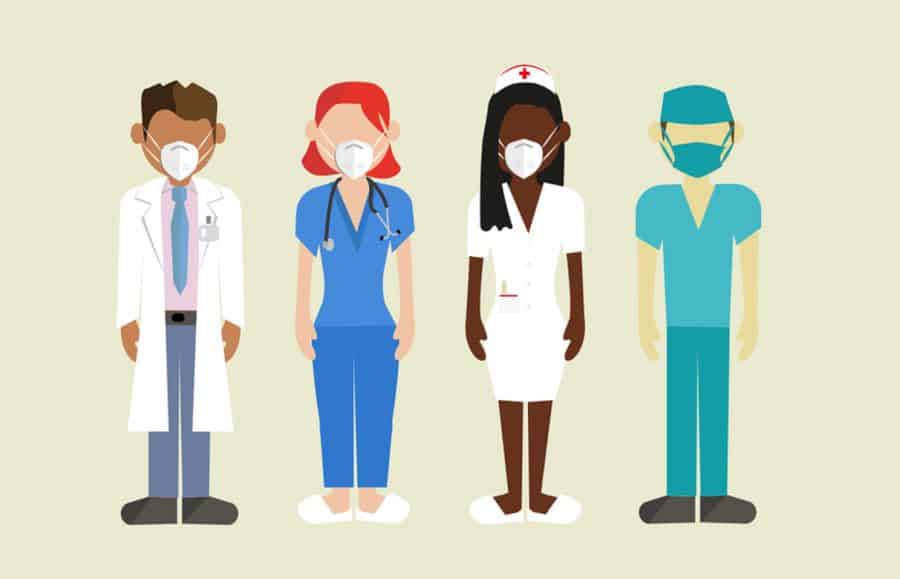Transcranial Magnetic Stimulation Treatments Under the Spotlight
Transcranial Magnetic Stimulation (TMS) is an FDA cleared treatment regimen for Major Depressive Disorder, particularly the kind that is resistant to medication and therapy. As a mental health disorder, depression affects an estimated 300 million+ people worldwide and is ‘..a leading cause of morbidity and its contribution to global burden of diseases is likely to increase with time.’ [Source: NIH: Efficacy of repetitive transcranial magnetic stimulation in treatment-resistant depression: the evidence thus far]
Introduction to TMS
Normal depressive disorders respond favorably to traditional treatments. This is not the case with treatment-resistant depressive disorders such as MDD and OCD. These mental health conditions require a completely different approach. For patients seeking the most efficacious solutions, surgical procedures have proven tremendously helpful. Options include DBS (Deep Brain Stimulation) with implanted surgical electrodes, Vagal Nerve Stimulation (VNS), and ECT (Electroconvulsive Therapy). [Source: NIH Neurosurgical treatments of depression Yasin Temel and Lee Wie Lim]
Surgical solutions come with attendant risks including the following:
- Pain
- Scarring
- Infection
- Swelling
- Botched operations
- Illness and morbidity
- Surgical site incisions
- Anesthesia and complications
There are high attendant risks with any surgical procedure, especially those dealing with the nervous system and the brain. For these reasons, psychiatrists, therapists, medical doctors, and scientists have sought out alternative solutions that provide a much safer treatment regimen. Enter TMS. Transcranial magnetic stimulation is a non-invasive, nonsurgical, outpatient procedure which is performed without anesthesia, sedatives, or pain medication.
TMS utilizes electromagnetic coil technology to deliver a rapidly pulsing magnetic field designed to activate nerve cells in the front part of the brain. These are thought to be responsible for depression-related symptoms in patients. TMS is a non-invasive treatment. Patients are fully awake while the TMS treatments are being administered. Typically, patients will undergo 5 treatment sessions per week of 20 minutes – 40 minutes per session, for a total of 4 or 6 weeks.
Patients are advised to search for TMS therapy near me options for details about commencing a treatment plan.
The Pros of TMS Treatments
- TMS is a non-invasive treatment which does not require any surgical procedures whatsoever. As such, no anesthesia needs to be administered during the sessions.
- TMS is generally well tolerated by the majority of patients. There are minimal side-effects, other than ringing in the ears (if ear plugs aren't worn) or mild headaches which are easily remedied with pain medication. TMS tends to be efficacious in patients who are resistant to medication and conventional treatment, with clinical data that supports these claims.
NIH: Efficacy of repetitive transcranial magnetic stimulation in treatment-resistant depression: the evidence thus far
- TMS is generally covered by insurance companies. This is a major benefit to patients, provided that conventional treatment options have been attempted first. In other words, patients are generally required to work with a medical doctor (psychiatrist, general practitioner) who has prescribed SSRI or SNRI medications. These medical doctors will then recommend sessions with a licensed mental health counselor (LMHC), after which TMS may be recommended as a treatment option.
- TMS does not require any use of drugs such as antidepressants, or reliance on other daily medication. However, TMS has been shown to be most effective when combined with medication and/or therapy as part of a cocktail of treatments for major depressive disorder or obsessive-compulsive disorder.
[Source: George MS, Wassermann EM, Kimbrell TA, et al. Mood improvement following daily left prefrontal repetitive transcranial magnetic stimulation in patients with depression: A placebo-controlled crossover trial. Am J Psychiatry. 1997;154(12):1752–6. Klein E, Kreinin I, Chistyakov A, et al. Therapeutic efficacy of right prefrontal slow repetitive transcranial magnetic stimulation in major depression: a double-blind controlled study. Arch Gen Psychiatry. 1999;56(4):315–20.]
- TMS has been shown to provide patients with long-lasting symptom improvement during the first 6 weeks – 8 weeks of treatment, as well as general mood improvements which can last for a significant period of time thereafter.
Source: *Carpenter LL, Janicak PG, Aaronson ST, et al. Transcranial magnetic stimulation (TMS) for major depression: a multisite, naturalistic, observational study of acute treatment outcomes in clinical practice. Depress Anxiety. 2012; 29(7):587–596. DOI: 10.102/da.21969 [PubMed: 22689344
- TMS can also be administered as a supportive maintenance treatment to keep patients mentally healthy. This type of treatment regimen can be administered monthly, or every 2-3 months to lock in gains from treatments.
- TMS treatments don't take very long. Typically, treatment centers can get patients in and out within 20 minutes – 40 minutes per session.
The Cons of TMS Treatments
- TMS can elicit increased anxiety levels in patients who are prone to worry. However, this is true only before any TMS treatments have been provided.
- From a financial perspective, there may still be an outlay required by the patient who doesn't have sufficient or proper medical coverage. Since TMS is a specialized treatment that requires evaluation by trained medical professionals, there may be limits on the availability of TMS to indigent communities.
- TMS treatments have been associated with mild discomfort such as buzzing, dizziness, ringing, or mild headaches. This is due to the electromagnetic waves pulsing into problematic areas of the brain. These are temporary side effects and pass soon after treatment is completed.
- TMS treatment sessions may be short in duration on an individual basis, but a lengthy commitment is required from patients over time. This may necessitate daily sessions for 4-6 weeks, or more. This can interfere with work and leisure time.
The content is intended to augment, not replace, information provided by your clinician. It is not intended nor implied to be a substitute for professional medical advice. Reading this information does not create or replace a doctor-patient relationship or consultation. If required, please contact your doctor or other health care provider to assist you to interpret any of this information, or in applying the information to your individual needs.

